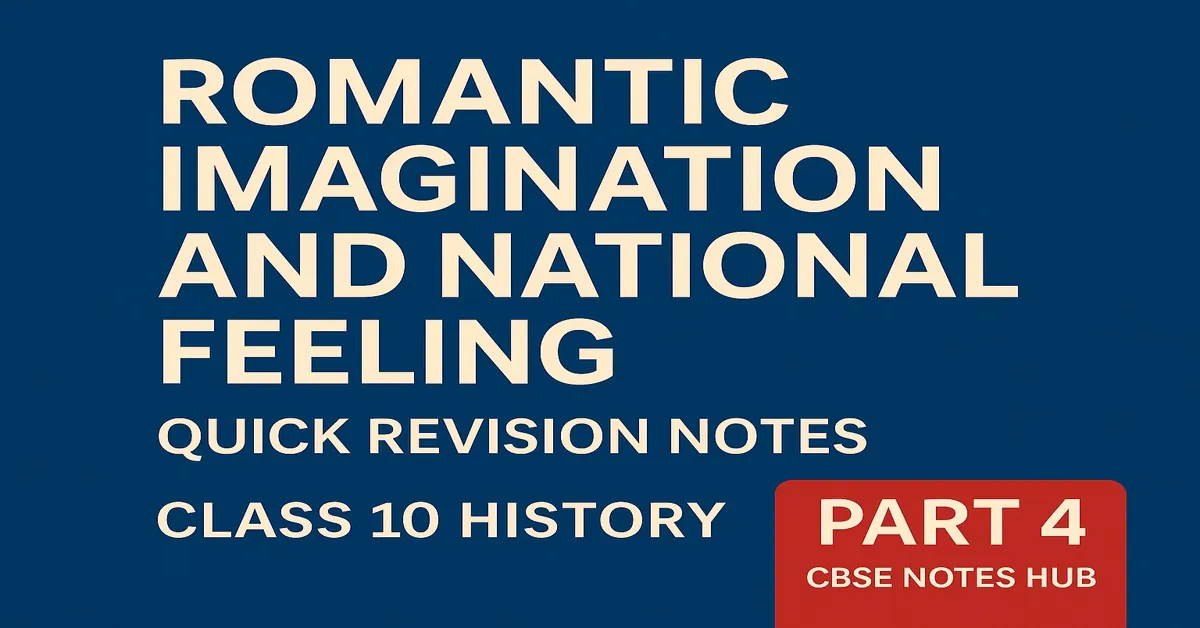This post provides you notes on Romantic Imagination and National Feeling, focusing on Romanticism, its effect on nationalism, the economic hardships of 1830, and the Frankfurt Parliament.
The Romantic Imagination and National Feeling
- Nationalism did not come about only through wars and territorial expansion.
- Culture played an important role in creating the idea of the nation.
Romanticism
- A cultural movement in which art, poetry, music, and stories were promoted to shape nationalist feeling.
Romantic Artists
- Criticised the glorification of reason and science.
- Focused on emotions, intuition, and mystical experiences.
Effects of Romantic Artists
- Created a sense of shared collective heritage — a common cultural past as the basis of nation.
- Emphasised vernacular language and collection of local folklore to revive national spirit and spread modern nationalist ideas.
📌 Must Read: Rise of Nationalism in Europe – Class 10 Notes Part 2
Poland
- Poland had been partitioned at the end of the eighteenth century by Russia, Prussia, and Austria.
- In 1831, an armed rebellion against Russian rule took place but was crushed.
- After the revolt, many Polish clergy used the Polish language as a weapon of national resistance.
- The use of Polish became a symbol of struggle against Russian dominance.
Hunger, Hardship, and Popular Revolt
- The 1830s were years of great economic hardship in Europe.
- There was a huge increase in population but limited job opportunities.
- In 1848, food shortages and unemployment brought people of Paris onto the streets.
- Louis Philippe was forced to flee, and the National Assembly proclaimed France a Republic.
- Suffrage was granted to all adult males above 21 years, and the right to work was guaranteed.
National Workshops
- National workshops were set up to provide employment to the jobless.
- In 1845, weavers of Silesia revolted against contractors who reduced their payments.
1848 – The Revolution of the Liberals
- Led by the educated middle class demanding constitutionalism and national unification.
- Called for a constitution, freedom of the press, and freedom of association.
Frankfurt Parliament
- In Germany, professionals, businessmen, and artisans formed an All-German National Assembly.
- The Frankfurt Parliament met in St. Paul’s Church with 831 elected representatives.
- They drafted a constitution for a constitutional monarchy, but Frederick Wilhelm IV of Prussia rejected the crown.
- Middle-class dominance alienated workers; troops later disbanded the assembly.
- Women participated actively in the movement but were denied political rights.
After 1848
- Conservative forces suppressed liberal movements but could not restore the old order.
- Monarchs later introduced reforms — serfdom and bonded labour were abolished in Central and Eastern Europe.
📘 Also Read:
CBSE Class 10 Rise of Nationalism in Europe Notes Part 3
Class 10 History Chapter 1 Important Questions for CBSE 2026
Source: NCERT

